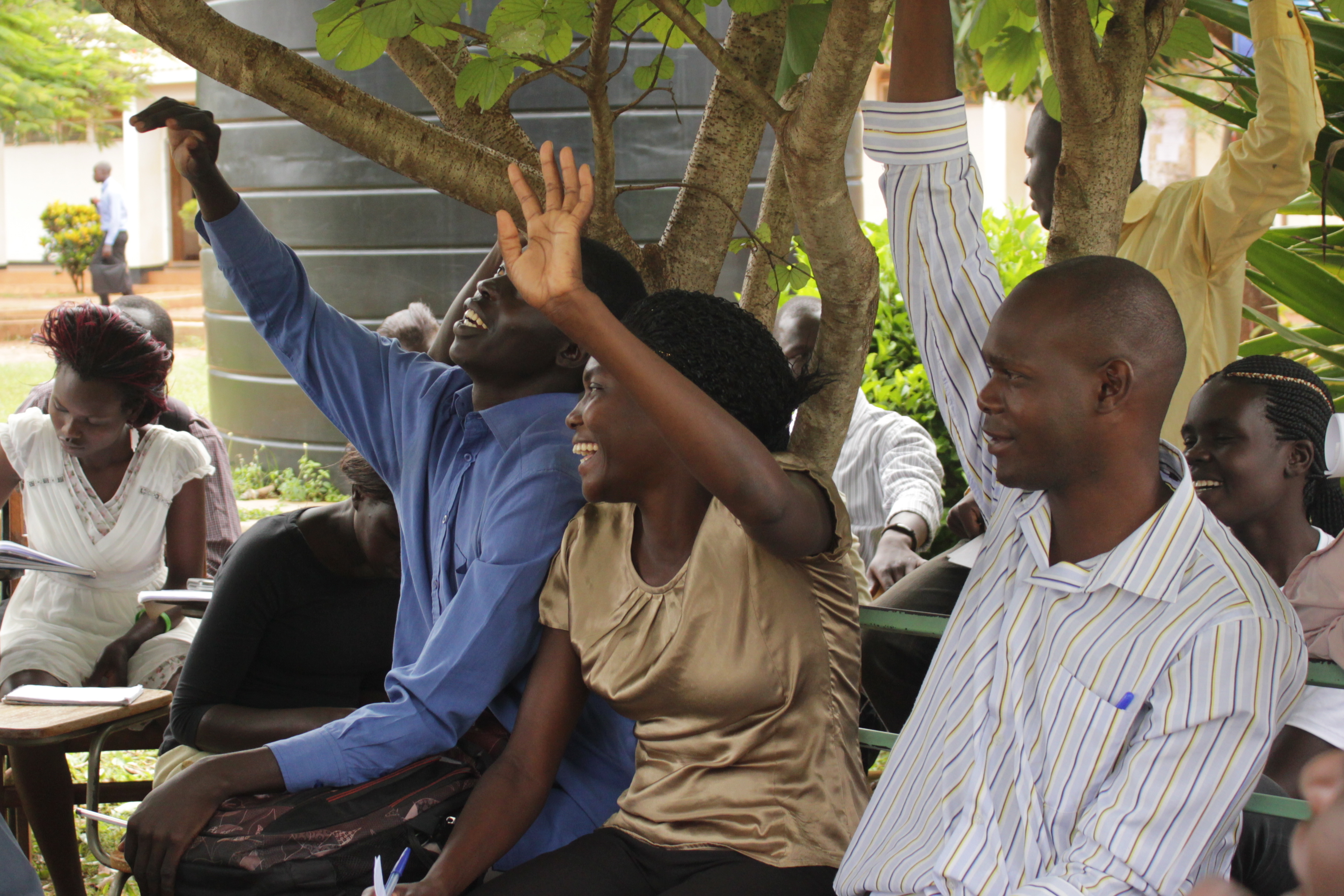Hands were raised and laughter spewed forth from beneath a large tree on Gulu University’s Main Campus. It’s a typical sight for any morning on campus, as students were sprawled across the lawn and gathering together between lectures. But this particular group has special meaning to Invisible Children Uganda.
The students, part of the Legacy Scholarship Program, came together for a group mentoring session, the last to be held this semester before exams begin next week.
On the agenda? Voting in new student coordinators and discussing any academic issues and questions. The conversation also centered on planning a charity project the students will participate in next semester and how they can individually give back to their communities.
A number of students mentioned being the first in their communities to receive a university education. An enormous subset of the population in northern Uganda had their education interrupted during the LRA conflict, making programs such as LSP all the more important in developing the country’s next leaders and promoting lasting peace.
“I don’t need to be the only lady in my village with this level of education,” Beatrice Ayee, a third year student studying agriculture, said.
The students, who come from five subregions throughout Uganda, were encouraged to set an example for others and open their minds in order to do something impactful with the knowledge they are gaining in school.
For instance, Beatrice recognized that her community was in need of economic empowerment. She talked about encouraging young people to pursue education as well as returning home and helping members of her community to start their own income generating activities (IGAs).
“Work hand in hand to identify activities in your community,” Betty Topaco, ICU’s Assistant Lead Mentor, said to the students. “It’s a way of saying thank you and showing how education can do big things.”
Students in the Legacy Scholarship Program are selected based both on their academic performance and potential and vulnerability. Level of vulnerability includes children who are orphans, heads of their household, living with HIV/AIDS, were at one point abducted by the LRA, or girls who have children of their own.
On the surface, these vulnerabilities aren’t apparent, but what is clear is how motivated the students are to take advantage of educational opportunities and to improve northern Uganda.

Think people should hear about this?